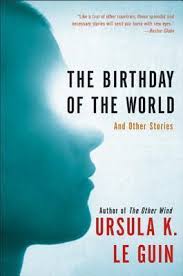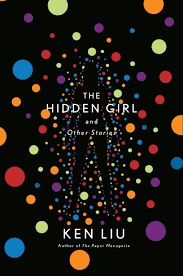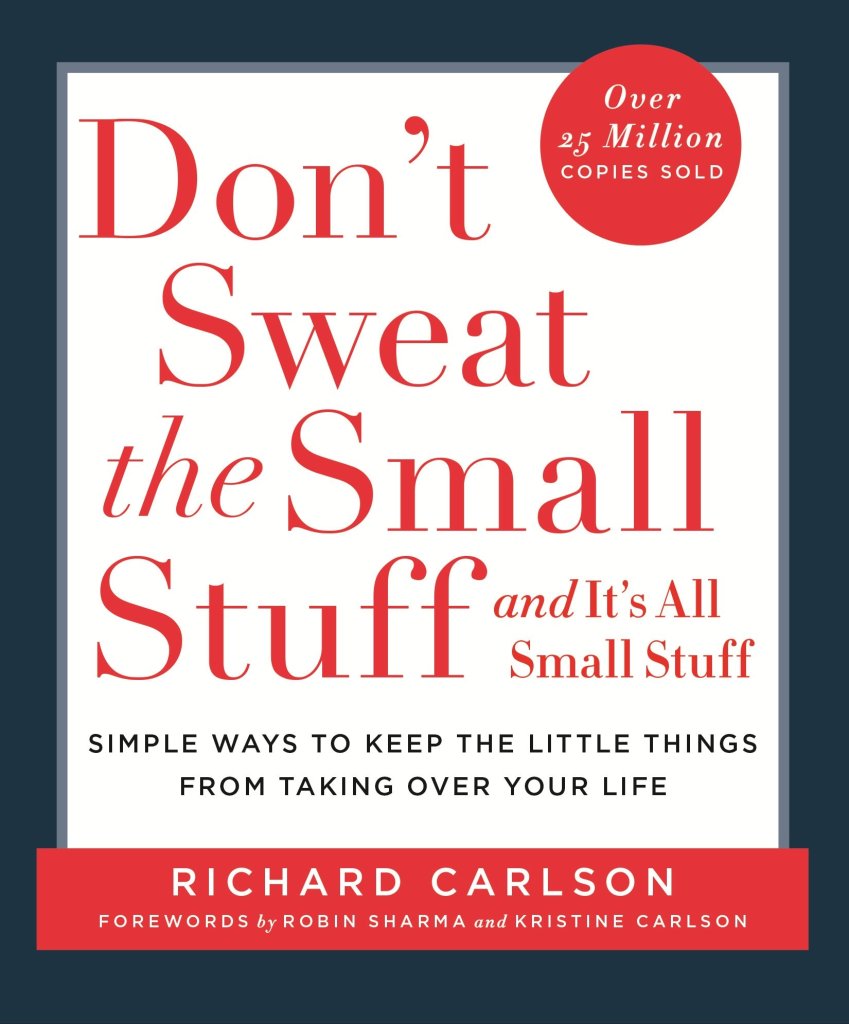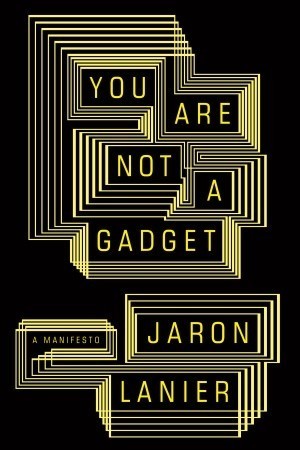A selection of my favorite passages from the book
Coming of Age in Karhide
★★★★☆ (4/5)
- Time is different here. I learned in school how the Orgota, the Ekumen, and most other people count years. They call the year of some portentous event Year One and number forward from it. Here it’s always Year One.
- We had dozens of different words for the way snow falls, descends, glides, blows, for the way clouds move, the way ice floats, the way boats sail; but not that word. Not yet. And so I don’t remember “flying.” I remember falling upward through the golden light.
- I was sick. My back ached all the time. My head ached and got dizzy and heavy. Something I could not locate anywhere, some part of my soul, hurt with a keen, desolate, ceaseless pain. I was afraid of myself: of my tears, my rage, my sickness, my clumsy body. It did not feel like my body, like me.
- A half year in pain from a shattered leg had darkened and matured the adventurous, mischievous child, teaching anger, pride, endurance.
The Matter of Seggri
★★★★☆ (4/5)
- Their gender imbalance has produced a society in which, as far as I can tell, the men have all the privilege and the women have all the power.
- Maybe some day it will be possible for a boy to choose his life. Among your peoples a man’s body does not shape his fate, does it? Maybe some day that will be so here.
- However well- meaning they were, they mostly frightened and confused me. But fear and confusion were an appropriate preparation.
- “How you play is what you win,”
- What is it like to return from the dead? Not easy. Not for the one who returns, nor for his people. The place he occupied in their world has closed up, ceased to be, filled with accumulated change, habit, the doings and needs of others. He has been replaced. To return from the dead is to be a ghost: a person for whom there is no room.
- This was our freedom: we were all ghosts, useless, frightened, frightening intruders, shadows in the corners of life. We watched life going on around us— work, love, childbearing, childrearing, getting and spending, making and shaping, governing and adventuring— the women’s world, the bright, full, real world— and there was no room in it for us. All we had ever learned to do was play games and destroy one another.
- That the story is never true, but that the lie is indeed a child of silence.
Un Chosen Love
★★★★☆ (4/5)
- They forget that human beings, while whining after the simple life, thrive on complexity.
- None of the flocks belonged to Meruo, whose people looked only to the sea, and farmed only the sea, and never walked if they could sail.
- One such night in early winter his feeling of being chafed, rubbed raw, like an animal fretting in a trap, all his nerve- ends exposed, was too much to endure. He dressed, very quietly for fear of waking Suord, and went barefoot out of their room, to get outdoors— anywhere out from under the roofs, he thought. He felt that he could not breathe.
- “Why do you stay?” she asked, not accusingly, but asking for an answer. “I love him,” Hadri said. “I don’t want to hurt him. If I run away I’ll be a coward. I want to be worth him.” They were four separate answers, each spoken separately, painfully.
- but what he wanted was to get Hadri alone, in a boat, where Hadri was not only useless but slightly uneasy and had no escape at all.
- These people had a capacity for remaining perfectly motionless and silent, like predatory animals, or fishing birds.
Mountain Ways
★★★★☆ (4/5)
- Then for half an hour nothing but the crisp whisper of the combs, the flutter of the unceasing wind over stones, the soft bleat of a calf, the faint rhythmical sound of the nearby beasts biting the thin, dry grass.
- Four souls and bodies and all the years of their four lives to come are in the balance in each of those decisions and invitations; passion, negative and positive, must find its channels, and trust must be established, lest the whole structure fail to found itself solidly, or destroy itself in selfishness and jealousy and grief.
- Akal had followed her far up the mountain, but would not follow her over a precipice.
- In general she had found that the main drawback in being a man was that conversations were less interesting.
Solitude
★★★★☆ (4/5)
- After the certain star sets you sleep until dawn wakes you. Then as always you greet the sunrise with aware silence.
- but my education was very difficult, sometimes. If only there were more stories and songs in her teaching, and not so many words, words that slipped away from me like water through a net!
- The Golden Time passed, and the beautiful summer; the Silver Time returned, when the mists lie in the valleys between the hills, before the rains begin; and the rains began, and fell long and slow and warm, day after day after day.
- The difference seemed total. He had been alone, without food, without shelter, a frightened boy trying to survive among equally frightened rivals against the brutality of older youths intent on having and keeping power, which they saw as manhood. I was cared for, clothed, fed so richly I got sick, kept so warm I felt feverish, guided, reasoned with, praised, befriended by citizens of a very great city, offered a share in their power, which they saw as humanity. He and I had both fallen among sorcerers. Both he and I could see the good in the people we were among, but neither he nor I could live with them.
- thinking is one way of doing, and words are one way of thinking.
- “You will never give in, will you, Ren?” she said to me one morning out of the silence of our breakfast. I had not intended the silence as a message. I had only rested in it.
- Solitude is noncommunication, the absence of others, the presence of a self sufficient to itself.
- A woman’s solitude in the auntring is, of course, based firmly on the presence of others at a little distance. It is a contingent, and therefore human, solitude.
- The mind always wants new happenings. So for the young soul there is wandering and scouting, travel, danger, change. But of course travel and danger and change have their own dullness. It is finally always the same otherness over again; another hill, another river, another man, another day. The feet begin to turn in a long, long circle. The body begins to think of what it learned back home, when it learned to be still. To be aware. To be aware of the grain of dust beneath the sole of the foot, and the skin of the sole of the foot, and the touch and scent of the air on the cheek, and the fall and motion of the light across the air, and the color of the grass on the high hill across the river, and the thoughts of the body, of the soul, the shimmer and ripple of colors and sounds in the clear darkness of the depths, endlessly moving, endlessly changing, endlessly new.
- By solitude the soul escapes from doing or suffering magic; it escapes from dullness, from boredom, by being aware. Nothing is boring if you are aware of it. It may be irritating, but it is not boring. If it is pleasant the pleasure will not fail so long as you are aware of it. Being aware is the hardest work the soul can do, I think.
Old Music and the Slave Women
★★★☆ ☆ (3/5)
- Most of it still stood, most of its fifteen million people were still there, but its deep complexity was gone. Connections were broken. Interactions did not take place. A brain after a stroke.
- Idle thoughts. During a revolution you don’t choose. You’re carried, a bubble in a cataract, a spark in a bonfire, an unarmed man in a car with seven armed men driving very fast down the broad, blank East Arterial Highway… They were leaving the city.
- His lungs were squeezed in his ribcage so that each breath was extremely difficult. He tried not to suffocate. He tried not to panic. He tried to be aware, only to be aware, but awareness was unendurable.
- He was glad, indeed, not to be obliged to talk about it, and hoped not to think about it. His body thought about it for him, remembered it precisely, in every joint and muscle, now. The rest of his thinking about it he would do as long as he lived. He had learned things he had not known. He had thought he understood what it was to be helpless. Now he knew he had not understood.
- The flowerbeds and shrubberies were untended, overgrown, but not yet gone wild. The gardens of Yaramera were utterly beautiful in their desolation. Desolate, forlorn, forsaken, all such romantic words befitted them, yet they were also rational and noble, full of peace. They had been built by the labor of slaves. Their dignity and peace were founded on cruelty, misery, pain.
- She nodded. The Werelian nod was a tip back of the head, not a bob down. He was completely used to it after all these years. It was the way he nodded himself. He noticed himself noticing it now. His captivity, his treatment here, had displaced, disoriented him.
- “I am not one of you. I neither own nor am owned. You must redefine yourselves to include me.”
- “A beautiful name. How old is he?” In the language they spoke that was, “How long has he lived?” Kamsa’s answer was strange. “As long as his life,” she said, or so he understood her whisper and her dialect. Maybe it was bad manners or bad luck to ask a child’s age.
- We followed his weakness. His incompleteness. Failure’s open. Look at water, Esi. It finds the weak places in the rock, the openings, the hollows, the absences. Following water we come where we belong.”
- This was a strange place to come to learn the quality of joy. Water is my guide, he thought. His hands still felt what it had been like to hold the child, the light weight, the brief warmth.
- He shouted once, “Let me out of here!” then got control of himself, returned to the cot, and after a minute sat down on the floor between the cot and the wall, as sheltered a place as the room afforded, trying to imagine what was going on.
The Birthday of World
★★★☆ ☆ (3/5)
- Maybe there would be no more time— no time coming behind our backs, only what lay before us, only what we could see with mortal eyes. Only our own lives and nothing else.
- The wars at the borders, the wars of conquest, had made our land too large. The people in the towns and villages knew no more who I was than I knew who they were.
Paradises Lost
★★★★★ (5/5)
- Their life is on another order. Orders, as a rule, cannot perceive one another except with instruments which allow perception of a different scale. With such an instrument one gazes in wonder at the world revealed. But the instrument has not revealed one’s larger- order world to that smaller- order world, which continues orderly, undisturbed and unaware, until the drop dries suddenly on the glass slide. Reciprocity is a rare thing.
- Dreams could also be convincing, beautiful, frightening, important. But she didn’t want to live in dreams. She wanted to be awake in her body touching true cloth, true metal, true skin.
- No danger from anything in the world but the danger the world itself was in. But that was a constant, a condition of being, and therefore hard to think about, except sometimes in dream; the horrible images. The walls of the world deformed, bulging, shattering. The soundless explosion. A spray of bloody mist, a tiny smear of vapor in the starlight. They were all in danger all the time, surrounded by danger. That is the essence of safety, the heart of it: that the danger is outside.
- The arrangement is, in fact, unfair. Sexuality and justice have little if anything in common. Love and friendship and conscience and kindness and obstinacy find ways to make the unfair arrangement work, though not without anxiety, not without anguish, and not always.
- History must be what we have escaped from. It is what we were, not what we are. History is what we need never do again.
- If everybody has access to the same food, clothing, furniture, tools, education, information, work, and authority, and hoarding is useless because you can have for the asking, and gambling is an idle sport because there’s nothing to lose, so that wealth and poverty have become mere metaphors—“rich in love,”“poor in spirit”—how is one to understand the importance of money?
- No matter how you civilised it, the body remained somewhat wild, or savage, or natural. It had to keep up its animal functions, or die. It could never be fully tamed, fully controlled.
- He mentally perceived words as having various sizes, densities, depths; words were dark stars, some small and dull and solid, some immense, complex, subtle, with a powerful gravity-field that attracted infinite meanings to them. Freedom was the biggest of the dark stars.
- “To speculate about our destination,” Tan said, “is to increase anxiety, impatience, and erroneous expectations.” He smiled slightly.
- “I don’t want to be in another person’s world, I want to be in mine,” she said. “You read novels,” he said. “Sure. But I do reading. The writer puts the story there, and I do it. I make it be. The v-programmer uses me to do his story. Nobody uses my body and my mind but me. OK?” She always got fierce.
- Within itself it was entirely self-sustaining, self-renewing. Every cell shed by human skin, every speck of dust worn from a fabric or a bearing, every molecule of vapor from leaf or lung, was drawn into the filters and the reconverters, saved, recombined, re-used, reconfigured, reborn. The system was in equilibrium.
- What did they need to know that they didn’t know? They knew that life was inside: light, warmth, breath, companionship. They knew that outside was nothing. The void. Death. Death silent, immediate, absolute.
- The “division of labor,” perhaps the oldest and deepest-founded of all the institutions of power-imbalance—was that irrational, fanciful set of prescriptions and proscriptions to be reinstituted here, where sanity and balance must, at the cost of life itself, be preserved?
- Shame and honor are powerful social engines. If enforced by total publicity and attached to rational need, rather than to hierarchic fantasies and the will to dominate, shame and honor can keep a society running steadily for a long time.
- Beneath their friendship was something that was not public, and was not friendship: a pledge made without words, but with the body; a non-action with profound results. They were each other’s privacy. They had found where away was. The key to it was silence.
- Inbliss has gradually changed the emphasis of this vision. Here is all. There’s nothing outside the ship—literally nothing, spiritually nothing. Origin and destination are now metaphors. They have no reality. Journey is the sole reality. The voyage is its own end.”
The Shobies’ Story
★★☆☆☆ (2/5)
- The word is Hainish and means “making a beginning together,” or “beginning to be together,” or, used technically, “the period of time and area of space in which a group forms if it is going to form.” A honeymoon is an isyeye of two.
- Unbreathing, the ghosts flitted, shifted, in the ghost shell of a cold, dark hull floating near a world of brown fog, an unreal planet. They spoke, but there were no voices. There is no sound in vacuum, nor in nontime.
- “Do you mean,” Lidi said in a tone of deep existential disgust, “that we have to believe in it to make it work?”“You have to believe in yourself in order to act, don’t you?” Tai said. “No,” the navigator said. “Absolutely not. I don’t believe in myself. I know some things. Enough to go on.”“An analogy,” Gveter offered. “The effective action of a crew depends on the members perceiving themselves as a crew—you could call it believing in the crew, or just being it—Right? So, maybe, to churten, we—we conscious ones—maybe it depends on our consciously perceiving ourselves as…as transilient—as being in the other place—the destination?”




